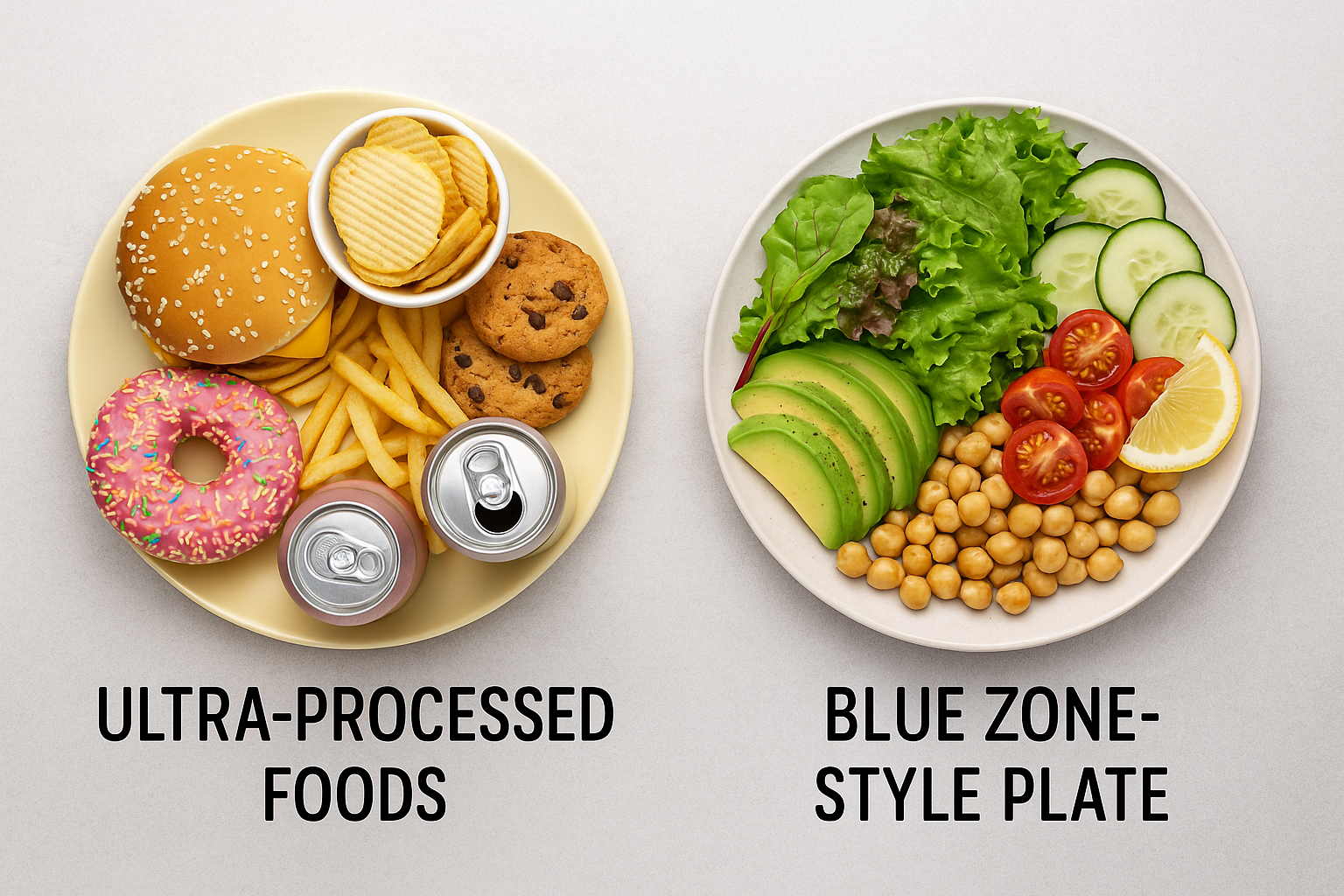As Alzheimer’s Awareness Month continues, it’s vital we shift our attention to one of the most overlooked contributors to cognitive decline: ultra-processed foods (UPFs). These factory-formulated products are not just damaging to our waistlines—they may also be silently affecting our brains.
In a time when rates of dementia are rising, understanding the link between diet and brain health is more important than ever.
What Are Ultra-Processed Foods?
Ultra-processed foods are industrial formulations typically containing ingredients not found in home cooking—preservatives, flavour enhancers, colourings, emulsifiers, and other additives. These foods are designed to be hyper-palatable, convenient, and shelf-stable, but they often lack nutritional value.
Common examples include:
- Sugary breakfast cereals
- Ready meals
- Soft drinks and sweetened juices
- Crisps and packaged snacks
- Flavoured yoghurts and processed cheeses
- Fast food and microwaveable dishes
The Link Between Ultra-Processed Foods and Cognitive Decline
Recent studies have begun to highlight the connection between high UPF consumption and an increased risk of dementia, including Alzheimer’s disease. Research published in the Journal of Neurology and by institutions like the University of São Paulo found that people who consumed large quantities of UPFs experienced faster cognitive decline compared to those who ate whole, unprocessed foods.
UPFs are often:
- High in refined sugars and inflammatory oils
- Low in fibre, antioxidants, and essential brain-supporting nutrients
- Associated with increased inflammation and oxidative stress, both of which are implicated in the development of Alzheimer’s
Brain-Friendly Alternatives—Inspired by the Blue Zones
In the world’s five Blue Zones—Okinawa (Japan), Sardinia (Italy), Nicoya (Costa Rica), Ikaria (Greece), and Loma Linda (California)—ultra-processed foods are virtually non-existent. People in these regions enjoy long lives with low rates of chronic disease, including dementia.
Their diets are naturally rich in:
- Organic fruits and vegetables
- Legumes and nuts
- Whole grains (in moderation)
- Healthy fats like olive oil and avocado
- Herbal teas and clean water
- Minimal or no processed sugar and refined grains
These communities show us that a preventative lifestyle is possible, and it starts in the kitchen.
What You Can Do Today
1.Read food labels – If the ingredient list looks like a chemistry experiment, it’s best avoided.
2.Cook more at home – This gives you full control over ingredients.
3. Shop local and organic – Reduce exposure to synthetic additives and pesticides.
4.Reduce sugar and refined oils – These contribute significantly to brain inflammation.
5. Drink filtered water – As we discussed earlier this month, even your water source can influence brain health.
Final Thoughts
There’s currently no cure for Alzheimer’s, which makes prevention our most powerful tool. Eliminating or drastically reducing ultra-processed foods is a critical step towards preserving cognitive function as we age.
At Blue Zone Nutrition, we believe in using nature’s pharmacy—real, whole, nutrient-dense foods—to support your body and brain. Let’s take our health into our own hands, one bite at a time.
Written by Milvia Pili (FNTP)
Registered Nutritional Therapist
Blue Zone Nutrition




